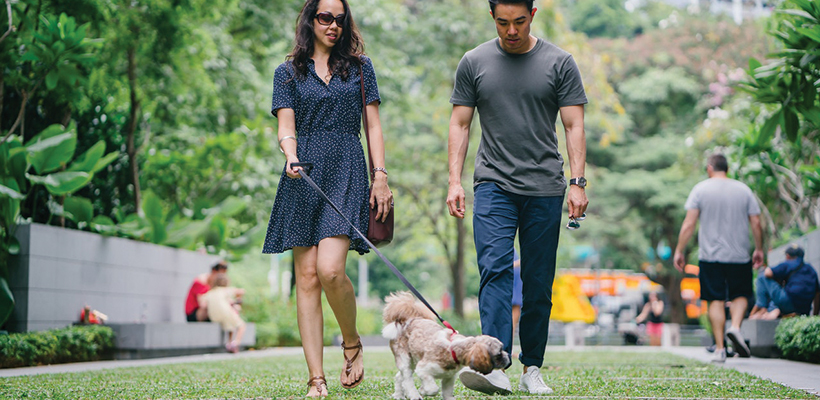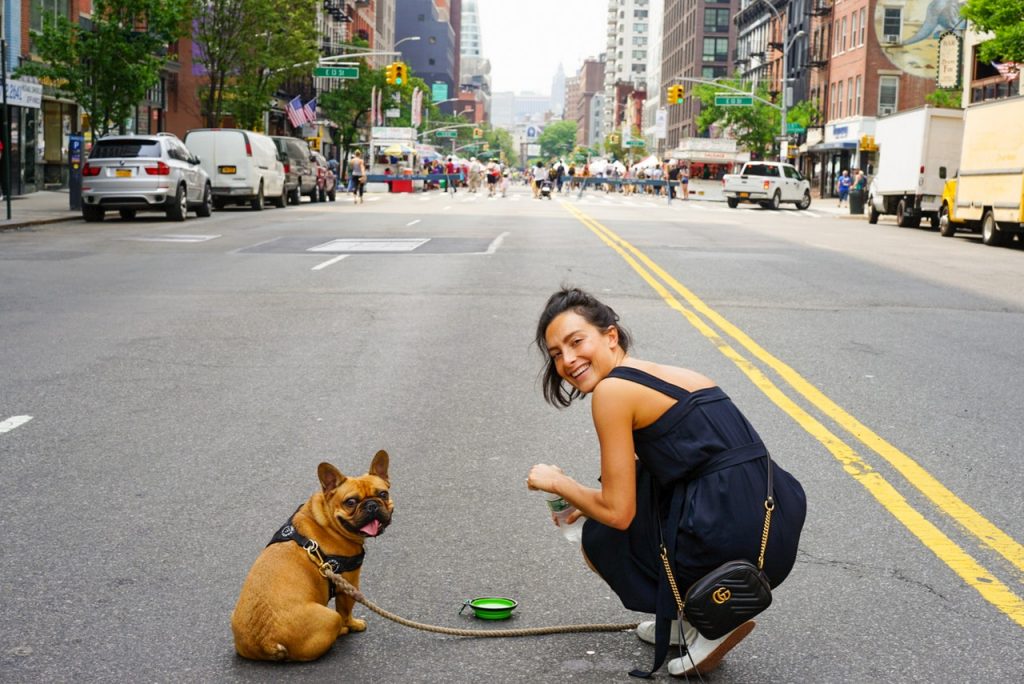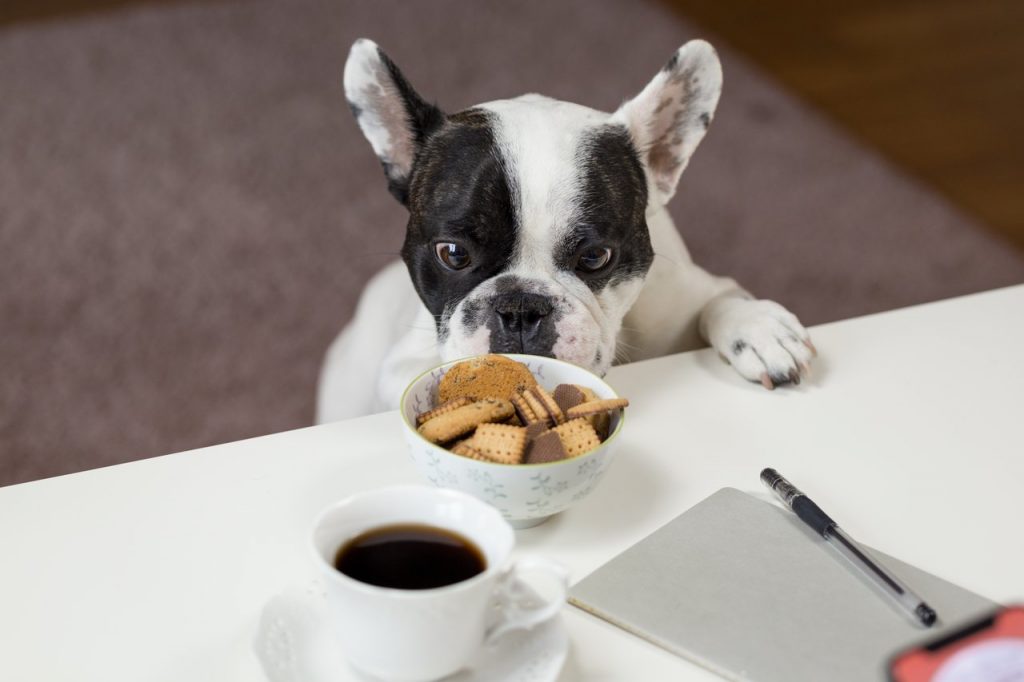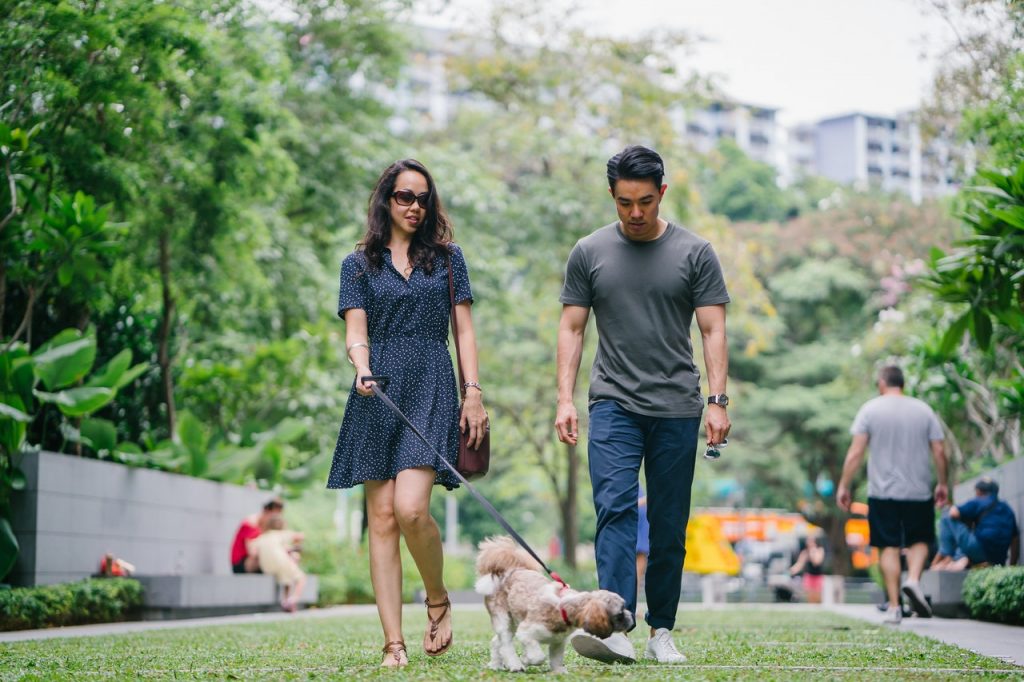
This article is contributed by guest writer, Nicole M.
Living with a New Puppy in the City
Raising a puppy in the city is much different than raising one in a suburban or rural setting. For example, most dogs don’t like to go to the bathroom on concrete… it just goes against their nature.
In fact, housetraining, in general, can be more challenging in the city, especially if you don’t live on the first floor with access to green space, and apartments like that are hard to come by.
By the time you’ve waited for the elevator, dashed through the lobby, and gotten to an appropriate potty space, you’ve likely missed an opportunity. But the good news is, puppies are extremely adaptable and there’s a solution for just about every issue. There’s no question puppies are high maintenance, but we promise they’re worth it! Let’s jump right into our top tips for living with a new puppy in the city.

Photo Credit: Megan Markham via Pexels
Consider your budget
Being a responsible pet parent can be pricey and raising a puppy in the city comes with additional expenses you’ll need to consider. For example, your apartment may require an additional security deposit or a monthly pet fee, as well as an extra cleaning fee when you move out.
You can’t leave a puppy locked up in your apartment all day long while you work, so you’ll also need to pay for a dog walker or doggie daycare. And, of course, you’ll have the typical expenses of puppy food, toys, baths and grooming, and cleaning supplies.
Health care is probably the greatest expense of owning a puppy, whether you live in the city or the country. Consider purchasing a pet insurance policy so that you’re not blindsided with a massive vet bill if your puppy becomes ill or injured.
Plan to take a little time off
If possible, take some time off work when you bring your new puppy home. Or, at least try to bring him home on a Friday so the two of you have all weekend to bond and begin the housetraining process.
Most importantly, you should use this time to establish a routine that includes, potty time, meals, and playtime. Having regular feeding times and regular potty breaks will help you and your new puppy get potty training down much more quickly.
Puppy proofing is a must
Puppy proofing your apartment is a must for keeping your new puppy and your valuables safe. You’ll still need to supervise your puppy anytime he’s not in his crate, but it will give you peace of mind to have things you don’t want your puppy to get a hold of out of reach.
Here’s what needs to be out of your puppy’s reach:
- Electrical wires, cords, remote controls, and other electronics
- Garbage cans
- Medications, cleaning supplies, cosmetics, and any other toxic products
- Shoes and other valuables you wouldn’t want your puppy to chew up

Photo Credit: freestocks.org via Pexels
Communicate with your neighbors
Haven’t even met your neighbors yet? Now’s the time to introduce yourself! Even if your puppy is well behaved and quiet when you are home, that might not be the case when you’re gone.
Establish an open line of communication with your neighbors and ask them to come directly to you if your puppy is disturbing them when you’re not home. It’s much better if they complain to you first, rather than going directly to the landlord or building manager.
Create a safe area
Your puppy shouldn’t have free reign of the apartment until he’s potty trained. Pick one room that you can block off with a baby gate. Bathrooms, laundry rooms, and kitchens are good options because they usually have tile floors that are easy to clean.
Keep his crate, bed, toys, and water in that room so he can access them at all times. Anytime you can’t be supervising him, he should be in his crate or the safe room. This will keep messes to a limited area and you can gradually allow him access to other areas of the apartment as he gets older.
Have a plan for housetraining
One of the biggest obstacles of living with a new puppy in the city is potty training because vertical living is so common. Since your puppy probably won’t have access to a yard for potty breaks, you’ll need to have another plan.
You could try some indoor house training methods, such as puppy pads or even using a litter box. You can still potty train outdoors only, but keep in mind that puppies need to go to the bathroom frequently. They can wait for about one hour for every month of age. So, if your puppy is two months old, he should be taken outside every two hours.

Photo Credit: mentatdgt via Pexels
Final tips
Puppies that live city life pass by strangers and other pets daily, and they’re often welcome in restaurants and businesses. They’re certainly not lacking for socialization and stimuli. However, this increased exposure to other pets means increased exposure to communicable illnesses, so keeping your puppy up to date on his vaccines is crucial in the city.
There’s also a greater risk for exposure to toxins and bacteria in the city, so never allow your puppy to drink from puddles and always wipe off his feet after you come back inside. Hot pavement and sidewalks also create a risk for your puppy. Remember, if you can’t hold your hand on a surface for at least five seconds, it’s too hot for your puppy to walk on.
All that being said, puppies can live happy and full lives in the city, as long as their needs are met. With a little creativity and dedication, your puppy will enjoy city life just as much as you do.
